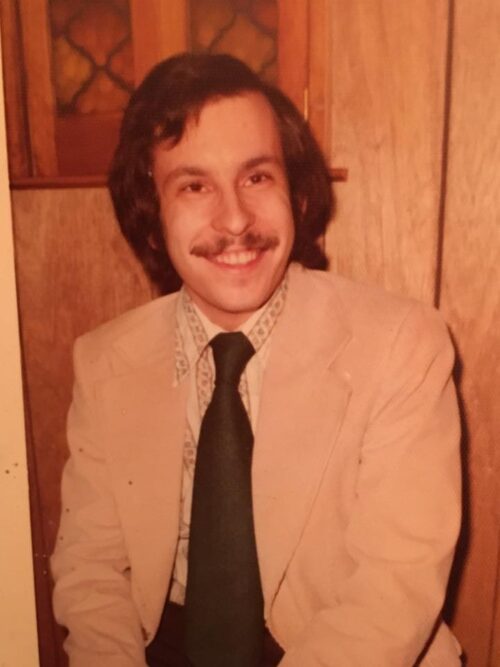GUEST POST by MICHAEL STEINMAN
Every day, I encounter deaths and illnesses: people I know and admire. Someone is no longer there. My first response is a horrified helplessness, emotional paralysis. But I cannot live in fear and premature mourning.
Because I am not morose by nature, what bloomed in my mind today was whimsical and introspective, “If this can happen, I must be old too! How did I go from being the youngest in my class to the oldest in the room?” I began college teaching at 23, and I thought I looked so young that I affected button-down shirts, serious ties, grown-up disguises, so that no one could say, “What are you doing at the front of the room, kid? Go back to your seat until the professor arrives!”
How did it happen that I now must go through an elaborate ballet of holding-on-to-something-solid before I can pick up the grocery receipt that has fallen to the floor? The youthful person I used to be was right here: where did I put him?
My wise compassionate wife, a doctor, has seen more of life than I ever will, says, “The clock ticks on.” And so, it does. The question I ask here is, “How do we make those ticks matter?”
If we are lucky, we can count the people who greet us with a hug, the occasions for spontaneous laughter, kindnesses and forgivenesses exchanged, the moments when we feel seen, understood, accepted. People less fortunate count estrangements and harsh words, pain, scarcities, disasters.
As the clock moves forward, we can take comfort even in the mundane and predictable. T.S. Eliot has J. Alfred Prufrock say, sadly, “I have measured out my life in coffee spoons.”
 Perhaps I enjoy food too much, but if you told me I have eaten X hundred thousand slices of toast I would be perversely glad. How many meals have I shared with people I love? Even filling the dishwasher with too many plates reminds me of the dishes full of brightly colored food a few hours earlier. I do not look forward to doing laundry, but the result is satisfying, and I can congratulate myself that I can accomplish this without paid help.
Perhaps I enjoy food too much, but if you told me I have eaten X hundred thousand slices of toast I would be perversely glad. How many meals have I shared with people I love? Even filling the dishwasher with too many plates reminds me of the dishes full of brightly colored food a few hours earlier. I do not look forward to doing laundry, but the result is satisfying, and I can congratulate myself that I can accomplish this without paid help.
Perception, although subjective, is its own reality. What lens shall we make our own? Shall we choose unalloyed grief, or shall we temper that with rejoicing for the people and events that lift us up?
Since music is often my first language, my answer is a song performed by my hero, Louis Armstrong, in his last decade, the Broadway hit CABARET.
https://www.youtube.com/watch?v=tZrbl2o0j84
Our time here is finite. But if we are breathing and sentient, if we can manage our pain, we are fortunate. The cabaret is open all night, every night. It can be our living room, or our car stuck in traffic, the interminable line at the store. It can be the unexpected phone call that leaves happiness in the air long after the closing words. It is any place where we can choose or even attempt to be joyous, even the doctor’s waiting room. Joy drowns out the ticking clock.
“Come hear the music play.”
 Michael Steinman is a writer and retired English professor, who thinks his real work is his jazz blog (JAZZ LIVES), where, through videos of live performances worldwide, he “sends out love in a swinging 4/4.” Michael asked me to add, “He is married to the best person on the planet.”
Michael Steinman is a writer and retired English professor, who thinks his real work is his jazz blog (JAZZ LIVES), where, through videos of live performances worldwide, he “sends out love in a swinging 4/4.” Michael asked me to add, “He is married to the best person on the planet.”



